As British Ambassador to Yemen from 2015 to 2017, and later in counterterrorism roles at the UN, I watched with growing frustration as Washington, despite its early clarity, lost the plot in Yemen – with consequences that are now rippling across the Red Sea and into Israel.
In 2014, the international community got it right. UN Security Council Resolution 2140 blamed the right culprits: former President Ali Abdullah Saleh and the Houthi leadership. The Houthis, a small sectarian militia allied with Saleh, were trying to hijack Yemen’s democratic transition – and the world recognized that. When President Hadi, the internationally recognized leader, was forced to flee Sanaa, Saudi Arabia launched a military intervention at Hadi’s request, justified under Article 51 of the UN Charter.
There was no question who the good guys and bad guys in this conflict were; we were on the side of Hadi and the Saudis. We understood the stakes: the Houthis, backed by Iran, were a violent minority trying to impose their rule on Yemen’s majority Sunni population.
So what went wrong? Essentially the international community was swayed by a number of prejudices and misconceptions, including about the moral sanctity of humanitarian activity.
Unless you are a Saudi or an Omani, Yemen can seem a long way away, a marginal concern to the West compared with more politically and strategically pressing conflict zones like Iraq, Syria, even Libya. In those circumstances, and particularly before Donald Trump challenged the thinking, Western countries would default to seeing crises like that in Yemen through an almost exclusively humanitarian lens.
The Department for International Development had more resource and more influence to bring to bear on the UK’s Yemen policy than the Foreign and Commonwealth Office. Anything that interfered with humanitarian delivery was by definition a bad thing and the Saudi and Emirati-backed efforts of the IRG to retake its territory from the Houthis fell into that category.
The international community of do-gooders is more cohesive and effective at lobbying than many people realise. It is a community that has a number of overwhelming prejudices which are broadly anti-Western and specifically hostile to Israel and Saudi Arabia.
Pressure groups like Oxfam and Amnesty teamed up with the human rights community and reinforced the humanitarian lobby, which was led by the UN Office for the Coordination of Humanitarian Affairs. Every time the Houthis succeeded in drawing Saudi airstrikes onto a civilian target (much like Hamas in Gaza now), Western officials like me were subjected to ever shriller lobbying about the iniquities of the Saudis. None of these groups seemed to care about the Houthis arresting, torturing and murdering ordinary Yemenis (any more than they do about Hamas doing the same to ordinary Palestinians).
This potent mix of humanitarian absolutism and anti-Saudi sentiment in Western Europe made it harder and harder for the US and the UK to hold their original line on why we should back the Saudis and the IRG. This ultimately led to US Secretary of State John Kerry, heavily influenced by Oman, taking an increasingly anti-Saudi line and seeking peace at any price. By the time of the Kuwait peace talks in 2016, only just over a year after the Saudis entered the war, the international consensus was that the Houthis should be given whatever they demanded to stop the war.
The result? The talks collapsed because the emboldened Houthis demanded total victory.
Worse still was the Stockholm Agreement of December 2018. The Saudis were on the brink of taking Hodeida, the key Red Sea port supplying the Houthis. But the murder of Jamal Khashoggi caused international outrage, playing into existing Western hostility and making it impossible for President Trump to shield the Saudis from international opposition to their campaign in Yemen.
The UN, backed by humanitarian lobbies, led demands that nothing be done that might interrupt the passage of humanitarian supplies through Hodeida. In theory, the Stockholm Agreement was supposed to ensure that the Houthis did not control Hodeida, but no attempt was made to monitor or enforce it, and the Houthis ignored it from day one.
Houthi recklessness and aggression in the Red Sea throughout 2024 show how foolish it was to imagine that they could ever be trusted to settle into a responsible, governing role in Yemen.
Now, even the UN has lost its appetite for defending the Houthis, whose arrogance and brutality is such that they have been kidnapping and abusing humanitarians, including UN staff, as well as making the Red Sea unsafe for humanitarian delivery operations.
But there appears to be uncertainty in the Trump administration about how to harmonize the various strands of Middle East policy: is it possible to be pro-Israeli and pro-Qatari at the same time? Can it contain the Houthis while courting Iran for a new nuclear deal?
The surest guarantee of an end to the Houthi threat to freedom of navigation in international waters is to drive them back from the Red Sea coast altogether. In other words, to tear up the Stockholm Agreement and take Hodeida and the coast between there and the Saudi border as should have been done in 2019.
What is unclear is whether the Saudis have the appetite for this, given their desire to extricate themselves from the Yemeni civil war. Only the US, and specifically President Trump, can reassure them of the reliability of support for them against the Houthis. Only the US can assemble the necessary international coalition to underpin this overhaul of international policy towards the Houthis.
This is a unique opportunity to coerce a change in Iran. If not regime change (which is possible given the current weakness of the Islamic Republic), then the abandoning or destruction of all of Iran’s aggressive programs: nuclear enrichment, ballistic missile development, asymmetric warfare via the Houthis, Hezbollah, the Iraqi proxy militias and the other components of the Axis.
This will require determination and probably force. We must be prepared to confront both Iran and the Houthis, with the Houthis only likely to give up their aggressive agenda if they face defeat in the Yemeni civil war.
The US cannot afford to repeat the mistakes of Stockholm. The longer it waits to confront Iran and its proxies, the higher the price will be – not just for the Middle East, but for global security.



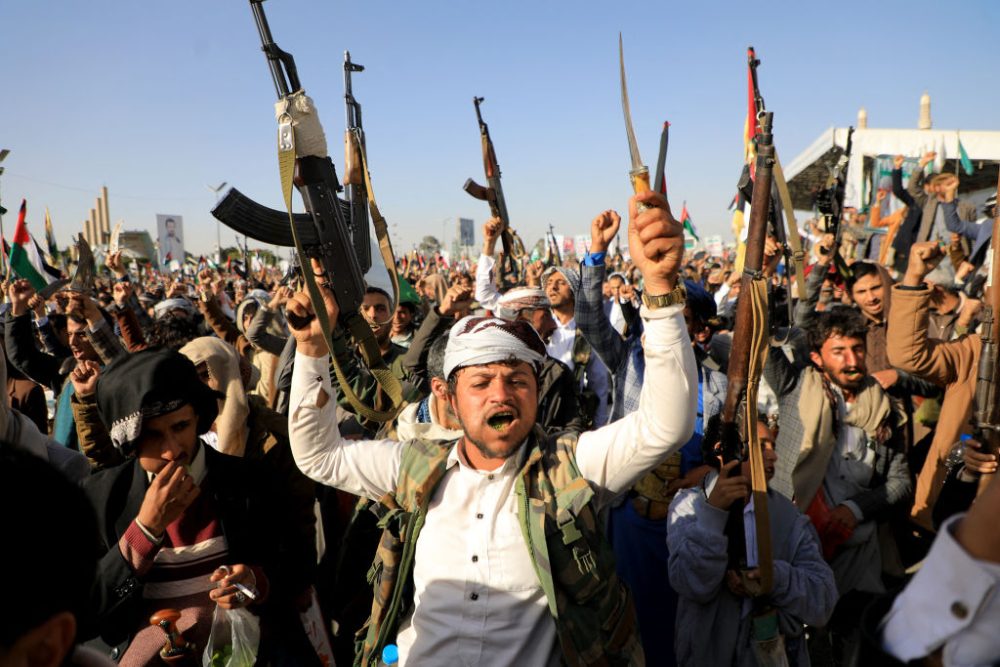






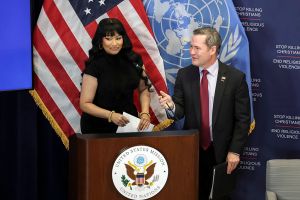




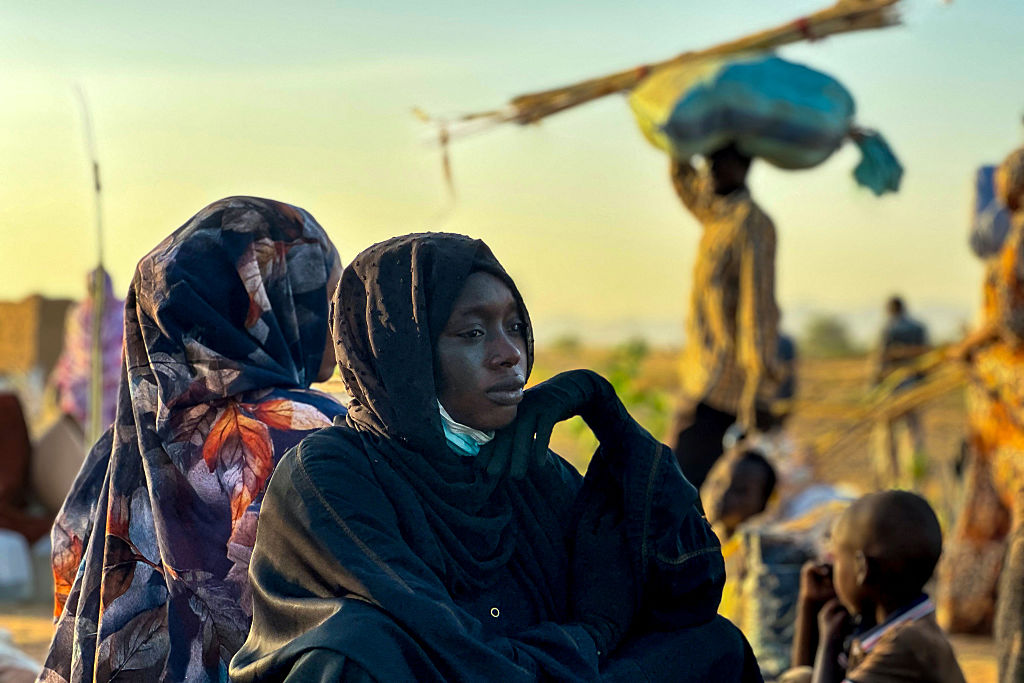
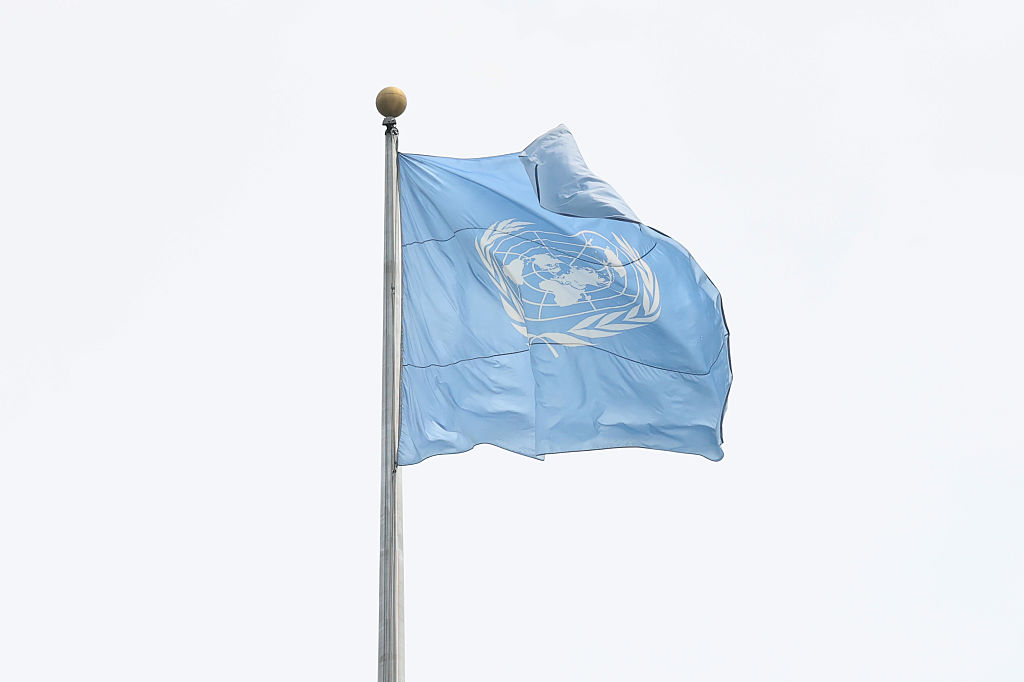
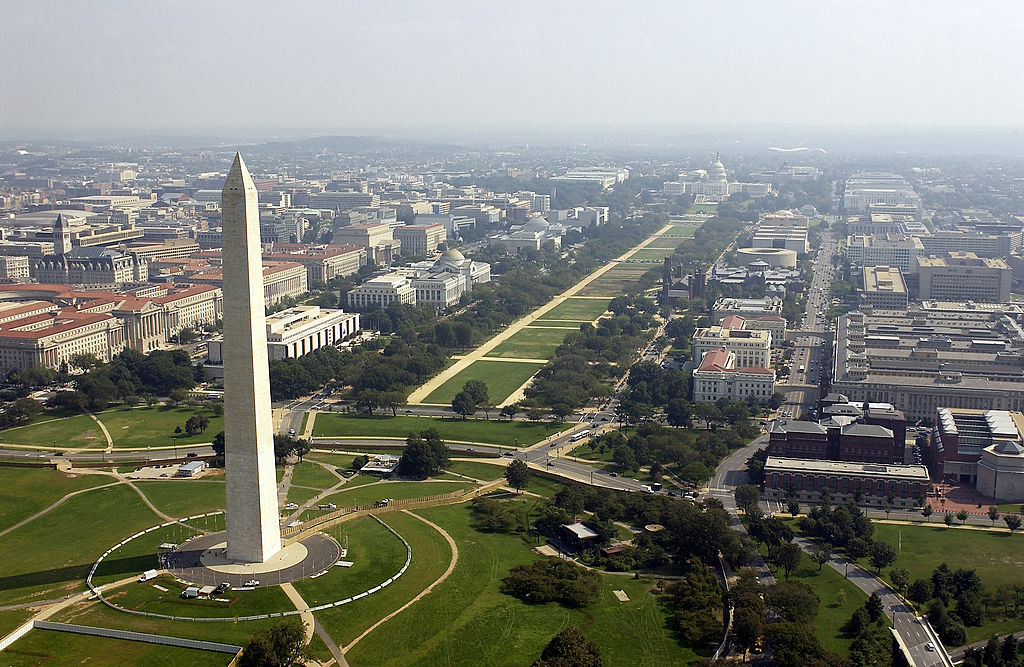
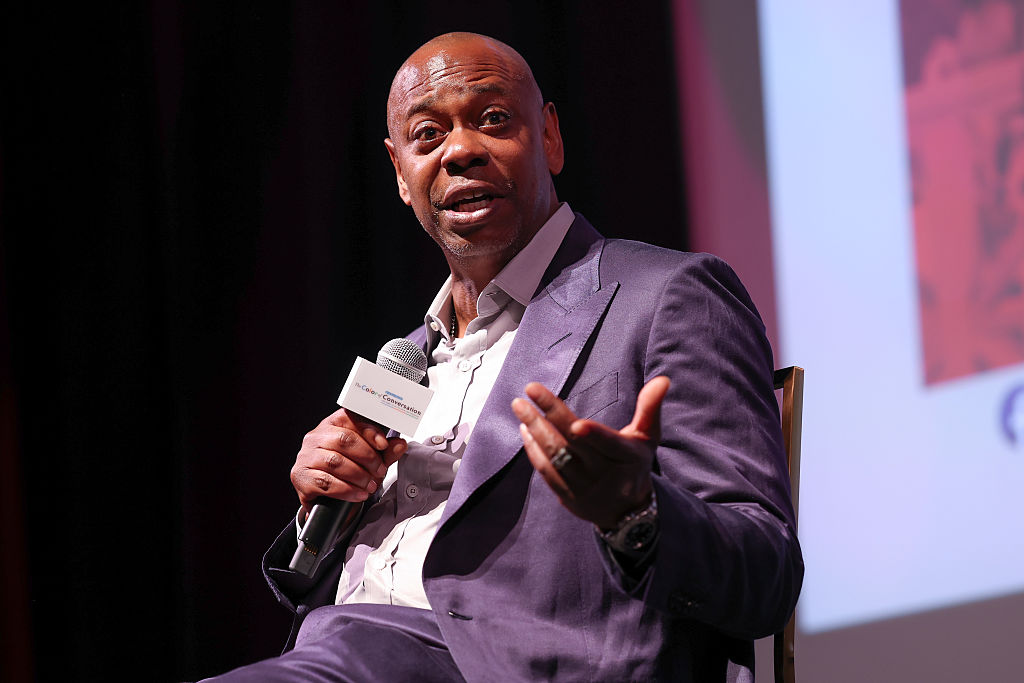







Leave a Reply